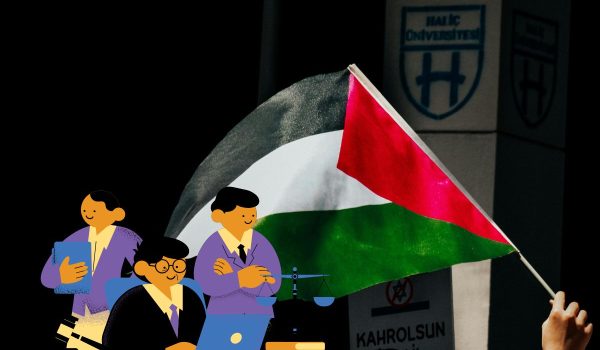Life under occupation is shaped by more than physical borders. The legal systems in place create their own barriers—less visible but deeply felt. In regions like the West Bank and East Jerusalem, many Palestinians live under rules that differ drastically from those applied to nearby Israeli settlers. These laws affect daily life, often in ways that outsiders may not realize at first glance.
Palestinians face a dual legal structure. One is civilian law for settlers. The other is military law for Palestinians. This unequal system affects how people move, build homes, and access justice. It touches everything—family life, work, education, and health.
Unequal Application of Law
Palestinians often experience the law not as a source of fairness but as a source of fear and control. For example, a home built without a hard-to-get permit may receive a demolition order. Appeals are possible, but success is rare. The process is expensive, confusing, and draining. Sometimes, residents learn about demolitions just days—or even hours—before they happen.
Movement is another big issue. Permits are required for many daily tasks. Want to visit family in another town? You may need permission. Want to travel to your workplace? That could depend on checkpoints and security clearance. The legal system, in this context, becomes a constant hurdle.
Some people are detained without formal charges. Military courts can convict minors as young as 12. The experience of arrest and detention, especially for youth, leaves long-lasting emotional scars. The absence of clear legal standards and protections means many go through the system without understanding what’s happening to them.
Legal Aid and Its Limitations
Legal aid plays a critical role. Local and international organizations try to offer help, from explaining basic rights to preparing legal defenses. Lawyers represent clients in military and civilian courts. They file petitions, challenge demolitions, and push back against arbitrary actions.
But these lawyers face challenges of their own. Court hearings can be rescheduled without notice. Travel restrictions can prevent them from meeting clients or gathering evidence. Military judges often rely on secret information, not shared with the defense. It’s a hard fight, with limited tools.
Still, legal aid makes a difference. Even one successful case can mean a home saved or a family reunited. Some organizations have helped thousands over the years. Their work brings hope to families living with uncertainty.
Everyday Legal Obstacles
Many of the legal problems faced by Palestinians are not dramatic. They’re frustrating in smaller, quieter ways. Filing a permit request to repair a roof. Waiting for approval to run a water line. Getting denied with no reason given. People may try again and again, only to hear nothing back.
This slow, grinding process wears people down. It creates stress that touches every part of life. A student might not be able to reach their university. A parent might miss work. A couple may give up trying to build a home.
Small business owners also struggle. Opening a store means dealing with unclear regulations. You might be told you need a permit—but no one explains how to get it. One person’s application is accepted, while another’s is denied for no clear reason. This unpredictability blocks progress.
International Law and Local Reality
Under international law, people living in occupied territories have rights. These include protection from being forcibly removed, from collective punishment, and from unfair legal treatment. The law recognizes that occupying powers must meet certain duties. But these rights are often ignored or poorly enforced.
International organizations issue reports. They document abuses. They call for change. But real action is slow. There are few penalties for violations. That’s why documentation by local groups is so important. It helps build long-term accountability.
These reports become part of global discussions. They support cases at the United Nations or international courts. They help journalists and researchers. Most of all, they give voice to people who are often ignored.
Stories Behind the Headlines
Legal challenges are not just headlines. They are lived realities. A grandmother facing eviction. A teenager arrested at a checkpoint. A farmer watching bulldozers level his land. These are people, not just case numbers.
Their stories highlight the weight of legal systems used to control rather than protect. But they also show resilience. Many continue to resist—not through violence, but through presence. Through persistence. Through standing in courtrooms and filing paperwork. Through refusing to disappear.
What Can Be Done?
Supporting legal organizations is one way to help. These groups need funding, media attention, and political support. They provide knowledge, comfort, and sometimes even victories. Each one matters.
International governments and agencies can play a role. They can monitor court proceedings. They can raise concerns in diplomatic channels. They can support efforts to make laws fairer and more transparent.
Education also helps. The more people understand what’s happening, the harder it is to ignore. Workshops, reports, and community events all spread awareness. These small steps build pressure and solidarity.
Moving Forward With Dignity
Even when the system feels stacked against them, people find ways to move forward. They keep going to work. They keep raising children. They keep trying to improve their lives. Legal challenges are part of that struggle.
Faith, family, and community support each person’s strength. With legal help, some manage to hold on to land, reopen shops, or get kids back in school. Progress may be slow, but it exists. And every act of resistance matters.
A single appeal might change one life. A collection of them might shift a policy. Over time, they shape the future.
People in occupied territories are not passive victims. They are advocates, survivors, and community builders. They know the law can be used against them—but they also know it can be used to fight back. In the end, legal work in these areas is not just about documents or courts. It’s about justice, dignity, and the right to a peaceful life.

